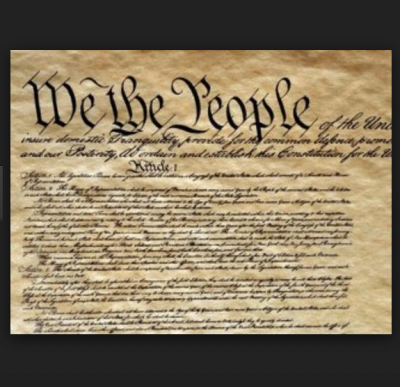TTP, TTIP, TISA “Trade” Deals: “Fast Track” Violates the U.S. Constitution

U.S. Constitution, Article 2, Section 2, #2: “The President … shall have power, by and with the advice and consent of the Senate, to make treaties, provided two thirds of the Senators present concur.”
The Constitution’s two-thirds Senate rule regarding treaties is violated by Fast Track as it currently stands and has stood; and that provision of Fast Track (reducing the required two-thirds down to merely half of the Senators voting “Yea”) would need to be eliminated and the Constitution’s two-thirds-Senate requirement restored, in order for there to be able to be any further applications of Fast Track; this would not necessarily apply regarding past applications of Fast Track such as NAFTA, and prudentiality might sway against such retrospective applications; but, for TPP, TTIP, TISA, and other future applications of Fast Track, or in other words for constitutionality of future international-trade agreements, the words of the Constitution are unmistakably clear, and those words must be applied, notwithstanding the violations of the U.S. Constitution that have already been erroneously instituted. The purpose of the U.S. Supreme Court is to hold that document, the U.S. Constitution, and none other, as this nation’s inviolable Scripture, by which all future actions of the United States Government are to be evaluated, and all future laws (a treaty being in a separate and even stricter category for which reason the two-thirds Senate rule was included in Article 2, Section 2, #2) are to be judged to be either valid or invalid.
The 50-vote-Senate provision of current Fast Track is unconstitutional if it allows anything of a “treaty” nature to be passed, because the two-thirds-Senate rule for any treaty is in the Constitution and would need first to be eliminated by the Amendment process in order for it to be able to be removed — and this has not been done.
The U.S. Supreme Court is, of course, exceedingly reluctant to accept justiciability of matters that are within the discretion and expertise of the other two branches, but the two-thirds-Senate rule is a Constitutional provision that applies to all treaties; and it is violated by existing Fast Track. For the Court to deny this issue’s justiciability would be for the Court to rule that the Constitution’s treaty-clause’s two-thirds-Senate rule can be legally violated by the Senate and by the U.S. Government. If that were the case, then there might as well be no U.S. Supreme Court, because it would be a Court whose ruling majority would be violating both of the solemn oaths by which each one of them had first entered the Court.
Furthermore, for the U.S. Supreme Court to rule that violating the clear words of the Constitution is within the discretion of the other two branches to do, would be an outrage that would be recognizable as such by the general public and that would therefore bring forth valid grounds for impeachment, if not for outright revolution. It would be treason from the judicial bench.
The language of the U.S. Constitution on this matter is clear. The Court’s only discretion on the matter concerns the prudentiallity of retrospective applications. Fast Track as it exists and has existed up till now is unConstitutional violation of the two-thirds-Senate rule for approving of anything that is in the nature of a “treaty.”
There is no discretion in this matter for any U.S. Supreme Court member who adheres to his oaths of office, and to the U.S. Constitution.
Fast Track as it now exists must be struck down.
Note: This is in response to a reader at reddit, who said, after having read only this article’s title (and taking issue with the article on that basis): “No, it doesn’t. Trade agreements aren’t treaties. This article is just fundamentally wrong.”:
Until 1979, every trade agreement that the U.S. had with any nation or nations was a treaty not only in reality but in name — recognized as such. However, in 1979, the U.S. signed the first international trade agreement that the U.S. refused to call a “treaty,” the Tokyo Round GATT. That sort of thing has happened only four more times, the biggest being NAFTA. And yet even after 1979, the vast majority of international trade agreements to which the U.S. was a signatory were called, even by the U.S., as “treaties.” So: you are wrong. Almost every international trade agreement that the U.S. has signed was called as a “treaty” by the U.S. Government.
The few (5) exceptions, all since 1979, were the few deals that were so bad they’d not have been able to pass constitutionally unless the U.S. Government declined to call them a “treaty.” But calling, for example, a robot a “person” does not make it so.
Investigative historian Eric Zuesse is the author, most recently, of They’re Not Even Close: The Democratic vs. Republican Economic Records, 1910-2010, and of CHRIST’S VENTRILOQUISTS: The Event that Created Christianity, and of Feudalism, Fascism, Libertarianism and Economics.

